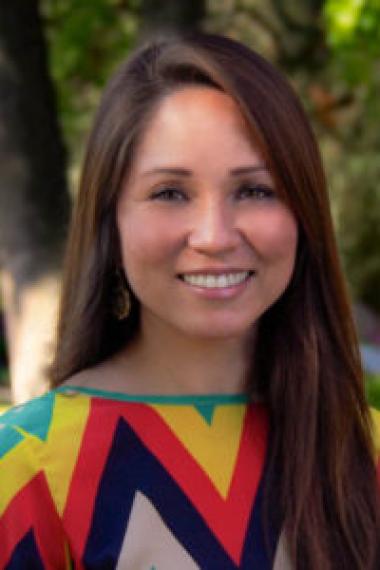The holidays can be full of joy, warmth, and tradition for many, but they can also bring stress, time commitments, and complicated family dynamics. To help families navigate the season with greater ease, Dr. Jamila Holcomb and Dr. Nari Jeter offer insights on managing stress and family dynamics during the holiday season.
Holcomb and Jeter are both licensed marriage and family therapists and teaching faculty in the Department of Human Development and Family Science at Anne’s College. Holcomb offers guidance on managing holiday stress, setting boundaries, and strengthening family connections, while Jeter provides insights on navigating holiday gatherings with romantic partners.
Part 1: Navigating Family Stress, Boundaries, and Expectations
Why do holidays, which are supposed to be joyful, so often become stressful for families?
Holcomb: The pressure to create holiday joy or magic often results in families spending a lot of money, stressing about organizing or attending holiday events, and feeling external pressure to come together as a family, even if the family isn’t very close or has had conflict. If individuals are already stressed in trying to perform for the holiday season, this often spills over into the family system.
How can people balance time between multiple families (e.g., in-laws, divorced parents, blended families) without guilt?
 Holcomb (pictured right): I think honoring that feeling is important. We often feel guilty because we want to spend time with everyone, or because we feel like we have to. If it’s the former, then perhaps stating your intentions to all family members and setting a schedule for when to see everyone. That way, everyone is aware of your goal to see as many people as possible. If it’s the latter (because you feel like you have to), then that is a great opportunity to reflect on why you feel that way. Where is the pressure coming from? Are these healthy relationships? What would the consequences be if you didn't see everyone? The results of these questions would likely indicate the need to establish healthy boundaries for yourself.
Holcomb (pictured right): I think honoring that feeling is important. We often feel guilty because we want to spend time with everyone, or because we feel like we have to. If it’s the former, then perhaps stating your intentions to all family members and setting a schedule for when to see everyone. That way, everyone is aware of your goal to see as many people as possible. If it’s the latter (because you feel like you have to), then that is a great opportunity to reflect on why you feel that way. Where is the pressure coming from? Are these healthy relationships? What would the consequences be if you didn't see everyone? The results of these questions would likely indicate the need to establish healthy boundaries for yourself.
Similarly, how can couples or individuals balance their own needs with those of their family during the holidays?
Holcomb: The first step would be for a couple or an individual to sit down and write their personal expectations during the holidays. Then, they can explore how these align with or conflict with the family's expectations and have a conversation about their needs/expectations before the holiday, so that everyone is on the same page. It’s also completely appropriate to spell it out for the family. For example: “Now that I am an adult or in a partnership, I (we) am trying to find out what my own views are for the holidays. I hope we can work together to find something that feels good for all of us.”
What are some healthy ways to set boundaries with family members during the holidays, especially when difficult or tense conversations (such as politics or religion) arise?
Holcomb: One option is to tell your family before the holidays which topics are off-limits and why. That way, there are no surprises. Then, if difficult conversations still come up, you can remind them of what was already agreed upon and change the topic. I also enjoy using humor to shift the conversation's direction. You could also get up and walk away or be direct and say: “I don’t want to have this conversation right now, can we please change the subject?"
What advice do you have for people who feel anxious before family gatherings because of differing views, lifestyles, or conflicts in the past?
Holcomb: It’s so normal. Holidays bring up so many emotions, and family relationships can be challenging, especially if there are differing opinions or beliefs. The best advice I can offer is to trust your gut and do what is best for you. The holidays should not mean that you sacrifice who you are, your comfort level, or even your safety for anyone, including family. Setting boundaries is okay, saying no is okay, choosing you is okay. And if family members are not validating, affirming, and accepting of who you are, you can choose to spend the holidays with a community that is.
What are some signs of emotional burnout during the holidays, and how can people manage it before it builds up?
Holcomb: Emotional burnout can look like exhaustion, overwhelm, irritability, and difficulty completing tasks (e.g. holiday cooking or shopping). It is so important to spot the signs and take care of yourself before you reach burnout. Slowing down, taking on manageable tasks, delegating, setting boundaries, and knowing when to rest or when you’ve reached capacity will help manage burnout. The holidays are supposed to be fun! If you aren’t having fun, it's a good time to regroup and reevaluate why that is and what you can change.

 Holcomb (pictured right): I think honoring that feeling is important. We often feel guilty because we want to spend time with everyone, or because we feel like we have to. If it’s the former, then perhaps stating your intentions to all family members and setting a schedule for when to see everyone. That way, everyone is aware of your goal to see as many people as possible. If it’s the latter (because you feel like you have to), then that is a great opportunity to reflect on why you feel that way. Where is the pressure coming from? Are these healthy relationships? What would the consequences be if you didn't see everyone? The results of these questions would likely indicate the need to establish healthy boundaries for yourself.
Holcomb (pictured right): I think honoring that feeling is important. We often feel guilty because we want to spend time with everyone, or because we feel like we have to. If it’s the former, then perhaps stating your intentions to all family members and setting a schedule for when to see everyone. That way, everyone is aware of your goal to see as many people as possible. If it’s the latter (because you feel like you have to), then that is a great opportunity to reflect on why you feel that way. Where is the pressure coming from? Are these healthy relationships? What would the consequences be if you didn't see everyone? The results of these questions would likely indicate the need to establish healthy boundaries for yourself. 
 Jeter (pictured right): Families are their own culture. When we’re in our own culture, we’re very comfortable. But for an outsider, it really can feel like visiting a completely new land. It would be very helpful to discuss the family culture surrounding everyday routines, holiday rituals, family rules, and people’s roles. What seems normal to one person may seem very unusual or novel to another. Providing some background information on how or why a certain family holiday tradition originated is important.
Jeter (pictured right): Families are their own culture. When we’re in our own culture, we’re very comfortable. But for an outsider, it really can feel like visiting a completely new land. It would be very helpful to discuss the family culture surrounding everyday routines, holiday rituals, family rules, and people’s roles. What seems normal to one person may seem very unusual or novel to another. Providing some background information on how or why a certain family holiday tradition originated is important. 


